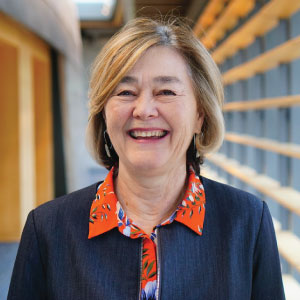Seattle City Councilmember Cathy Moore is proposing a 2% capital gains excise tax in Seattle, modeled after the Washington state tax. This tax would apply to profits on the sales of stocks and bonds exceeding $250,000 and is lower than the state’s 7% tax rate. The ballot measure to eliminate the state tax was rejected by 64% of voters, allowing it to remain in place. The city tax proposed by Moore would fund initiatives to help people pay rent, housing down payments, and provide food assistance for those in need, with plans for it to go into effect in 2026.
The City of Seattle is currently facing a $250 million shortfall in its general fund, totaling $1.9 billion, and is struggling to meet the needs of its residents. Moore, the chair of the Housing and Human Services Committee, believes that the new tax could help bridge the gaps in critical services such as housing, homelessness, access to home ownership opportunities, and addressing hunger crises. She plans to introduce her budget proposal amendment at the upcoming city council meeting on November 12.
Supporters of the failed ballot initiative argued that the state capital gains tax is harmful to small businesses and innovation, and some believe that the state should better utilize the existing funds. While the number of people impacted by a potential local tax in Seattle is still unknown, challenges in paying for programs supporting low-income residents are not new for the city. Five years ago, Seattle implemented the Payroll Expense Tax, also known as “JumpStart,” to fund affordable housing, homeless services, and economic development projects.
The JumpStart tax has brought in more revenue than projected, and the mayor’s budget proposed in September included a reallocation of these funds to support various city programs. However, Mayor Bruce Harrell does not currently support Moore’s proposed tax and is open to discussing other revenue options. Moore, who was elected last year and represents the north end of Seattle, believes that the new tax could help address the ongoing gaps in critical services faced by residents of the city.
Seattle has a budget shortfall and is struggling to meet the needs of its residents, particularly in areas such as housing, homelessness, and hunger. Moore’s proposed tax could potentially help fund initiatives to support these critical services, although there are differing opinions on whether a capital gains tax is the right approach. As the city council continues to review its budget and explore revenue options, the conversation around addressing the needs of Seattle residents and supporting the community will continue to evolve.












